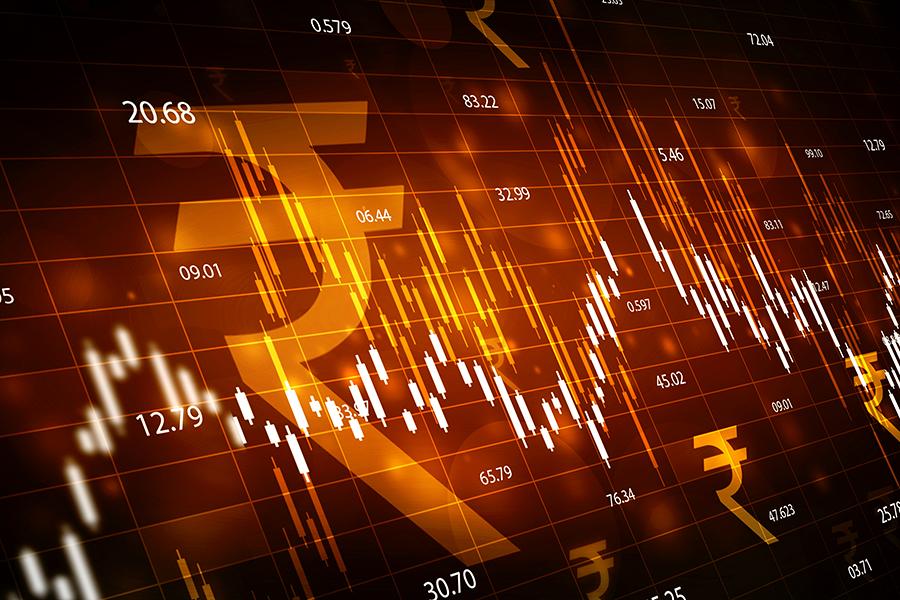Stock market investing: Can we expect a market correction soon?
The stock market is rising despite the pandemic and the expected negative GDP growth; here's how to best plan your investment strategy
RBI governor Shaktikanta Das recently warned us about the disconnect between our economy and the performance of the stock market. The stock market is rising despite the pandemic and the expected negative GDP growth in the current financial year 2020-21. The leading indices, i.e. Nifty and Sensex both corrected around 40 percent from their all-time highs, but have recovered very sharply, leaving many confused.
Why the sudden market hike?
The stock market is a forward-looking machine and discounts any positive or negative indication about economic recovery at a swift pace. The reason behind the recent rally is the excess liquidity infused by the central banks and as well as new-age investors, especially Robin Hood investors who are driving the markets.
Can we expect a correction? If yes, then what can we expect?
Many missed investing in March and are now sitting on cash to get back into the market. They are wondering whether the market will crash anytime soon. Because the earning potential is bleak for the next few quarters, the expensive Nifty index and the power of liquidity to sustain this rally means we can expect a correction in the market.
Can the market correct as it had in March 2020?
No one can ever predict a stock market correction with certainty, but if the market keeps rising in the current situation, the chances of correction also increase. A significant revision is not expected due to liquidity and discounting of the negative impact of the pandemic.
The effect of the pandemic is very sector-specific. For example, the banking and financial sectors will have many more NPAs. The entertainment and hospitality industries are severely impacted. These sectors will find it difficult to revive anytime soon.
What should you do?
First, do not try to time the market or make hasty investment decisions. Just staying out of the market and waiting for a correction is also going against the tide. We don’t know how long the current situation will last. An ideal way to handle this is to focus on your long-term strategy and asset allocation, and then make an informed decision, which is not driven by greed or fear. You can either re-balance your portfolio by booking some profits or invest in a staggered manner if you are sitting on cash.
Spread your investments over the next six months based on your asset allocation, apart from increasing your stakes aggressively if a significant correction happens. Ideally, you should never invest in equities for short-term unless you are a trader. As an investor, keep a minimum investment horizon of seven years.
This is a good time for you to reset your returns expectations from the market. Do not lose faith in Mutual Fund investments, as many new-age investors are flocking to stocks given the recent rally. They are comparing stock market performance to Mutual Funds, which is not an apples to apples comparison. Do not forget the fact that during the March correction, both stocks and Mutual Funds had crashed. Stock prices took a worse hit than Mutual Funds. Therefore, comparing long-term investment returns to the money people have made in the last one or two months is not appropriate. Continue with your SIPs to create long-term wealth. Do not expect these quick and sudden profits from stock market investing to last forever. The desire for quick profits can be thrilling but can kill as well. Unless you have a fair amount of time, money, and most importantly, expertise, do not flock to stocks. Be mindful.
You don’t know what you don’t know; reassess your risk profile
Almost everyone is aware of the risk stock market or Mutual Funds carry, but a pandemic like this serves as a reality check. It exposes risk appetite and behavioural biases. It’s an excellent time for every investor to be aware of their risk profile in the real sense of the word and to know what they don’t know. Take this moment to reflect, introspect and find a balance between risk and returns. Always remember that “higher the risk, higher the returns” is not the correct statement. It should be “higher the risk; higher should be the returns”.
The thoughts and opinions shared here are of the author.
Check out our end of season subscription discounts with a Moneycontrol pro subscription absolutely free. Use code EOSO2021. Click here for details.
